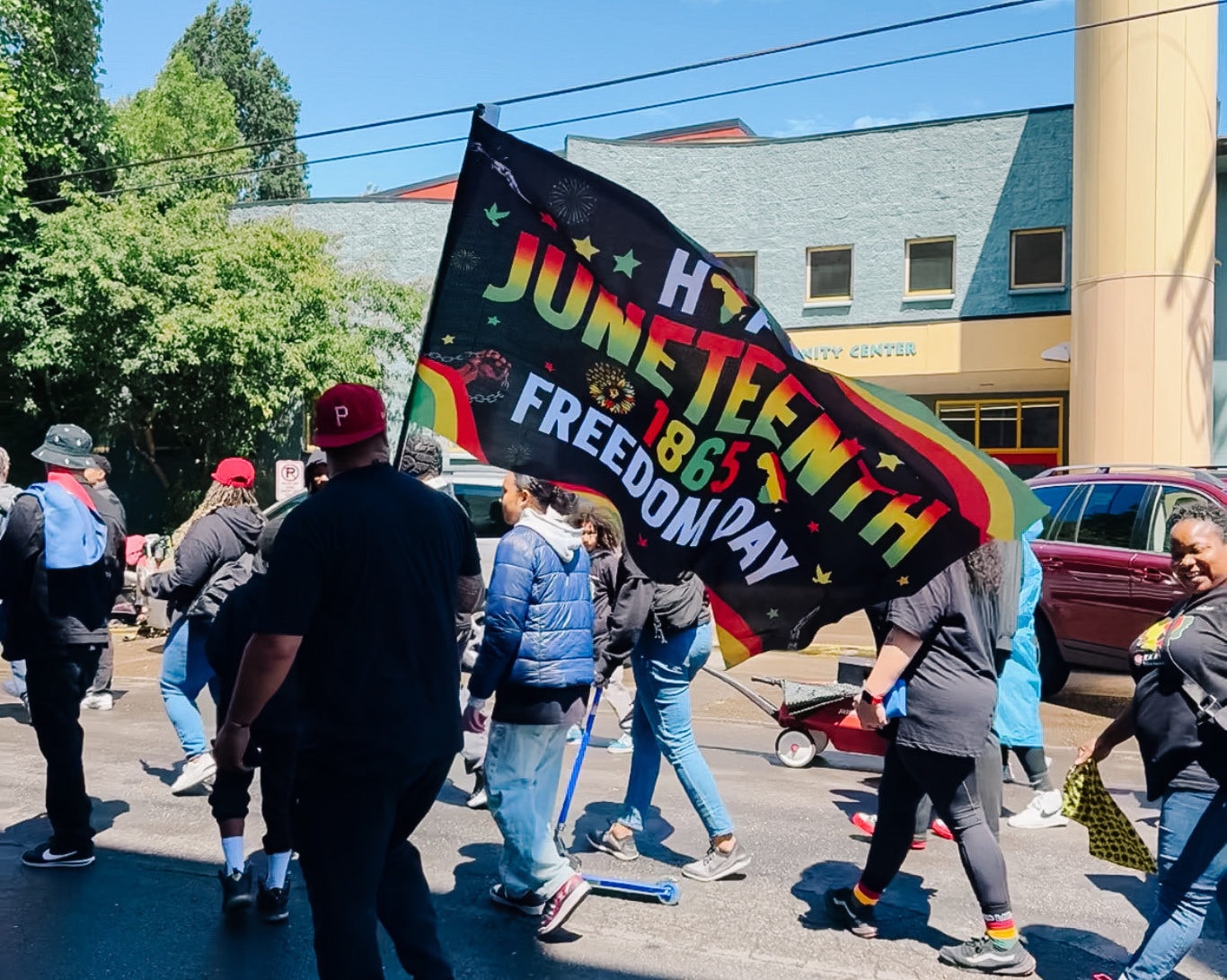Juneteenth Celebrations and the Power of Food
Juneteenth Celebrations and the Power of Food
Across the country, celebrations honor June 19 as Juneteenth, the oldest national commemoration of the end of slavery in the United States.
Juneteenth marks the date when enslaved people in Galveston, Texas learned that the Civil War had ended and that they were free. Texas was the last state in the Confederacy to disavow institutional slavery, and this news arrived on June 19, 1865 — a full two and a half years after the Emancipation Proclamation was signed.
At Oregon Food Bank, we believe that food is much more than “fuel” for the body. Food is a celebration of life. It’s a testament to cultures and it heals and affirms our spirits. Food also connects us to traditions, community, time and place, and champions legacies of resistance. In honor of Juneteenth, we share the cultural significance of traditional Juneteenth meals. We celebrate and uplift the African and Black ancestors who kept their people and cultures alive by preserving life through acts of feeding and creation (learn more about the Black history of food justice at the link here). We celebrate their lifetimes and those of their descendants – whose very existence are acts of resistance – and who continue to preserve Black radical tradition and reconnect with their lineages through the joy of food and culture.
Actions, Resources and Opportunities for Support
We encourage our communities to check out opportunities to support and get involved with Black-led organizations and businesses.
Give or volunteer with our longtime partners at Mudbone Grown and the Feed’em Freedom Foundation — working at the intersection of agriculture, land stewardship, regional food security response, and economic prosperity
Visit Black farmers and vendors at Portland’s farmers markets
Support efforts to grow food and community at Black Futures Farm
Donate to help provide weekly farm fresh produce from BIPOC farmers to BIPOC families via Equitable Giving Circle
Check out Juneteenth Oregon’s compilation of businesses statewide — or directories of Black-owned restaurants and businesses in the Portland area
Find resources and grant opportunities for new farmers of color, compiled by Friends of Family Farmers
Learn more in Black Liberation and Food Justice and Juneteenth Acknowledges Struggle, Perseverance of Black Americans
As always, if you or someone you know is in need of food assistance, know that food is available to all who need it. Check out our FoodFinder app for pantries, free food markets and meal sites near you.
|
Juneteenth marks the date when enslaved people in Galveston, Texas learned that the Civil War had ended and that they were free. Texas was the last state in the Confederacy to disavow institutional slavery, and this news arrived on June 19, 1865 — a full two and a half years after the Emancipation Proclamation was signed. 
|
